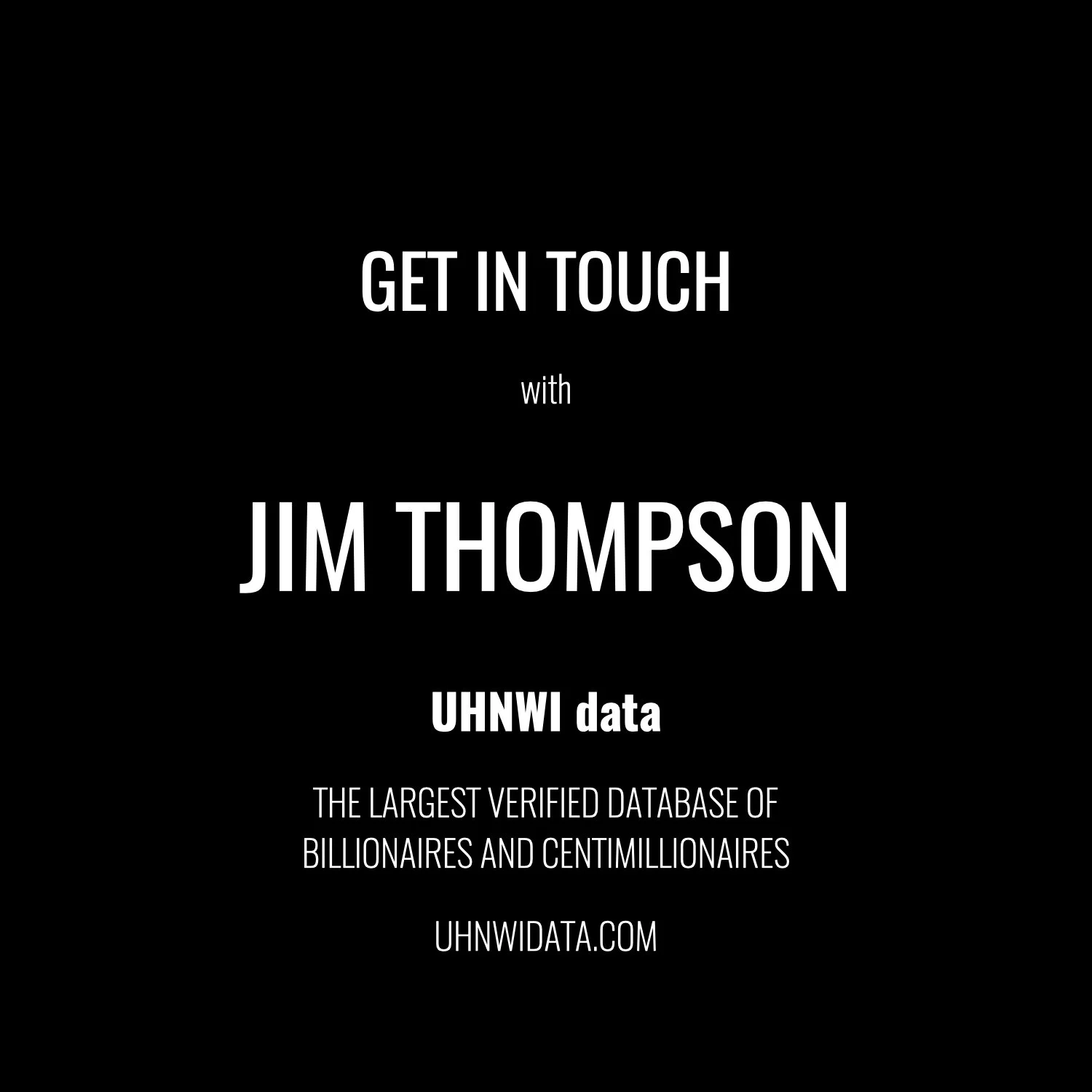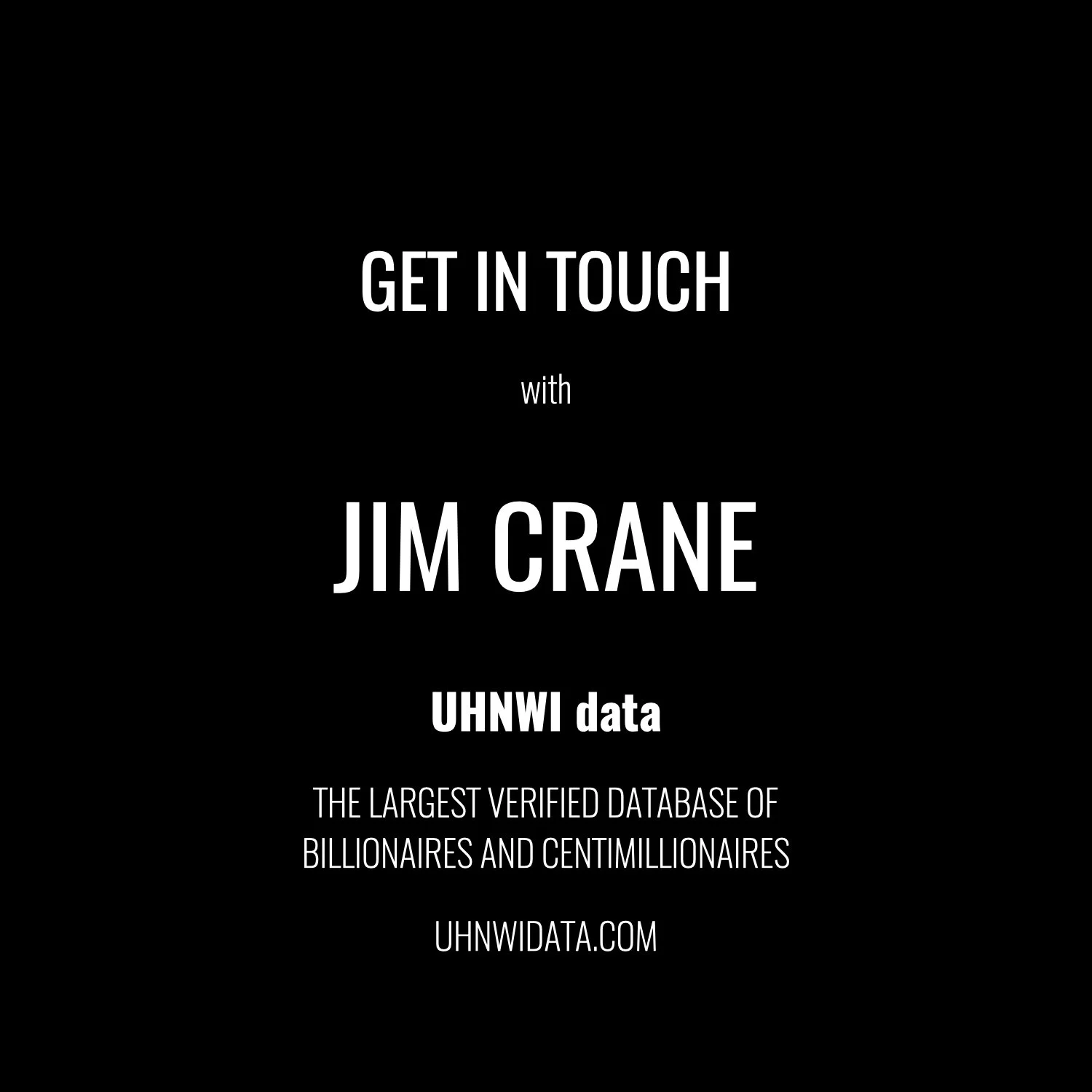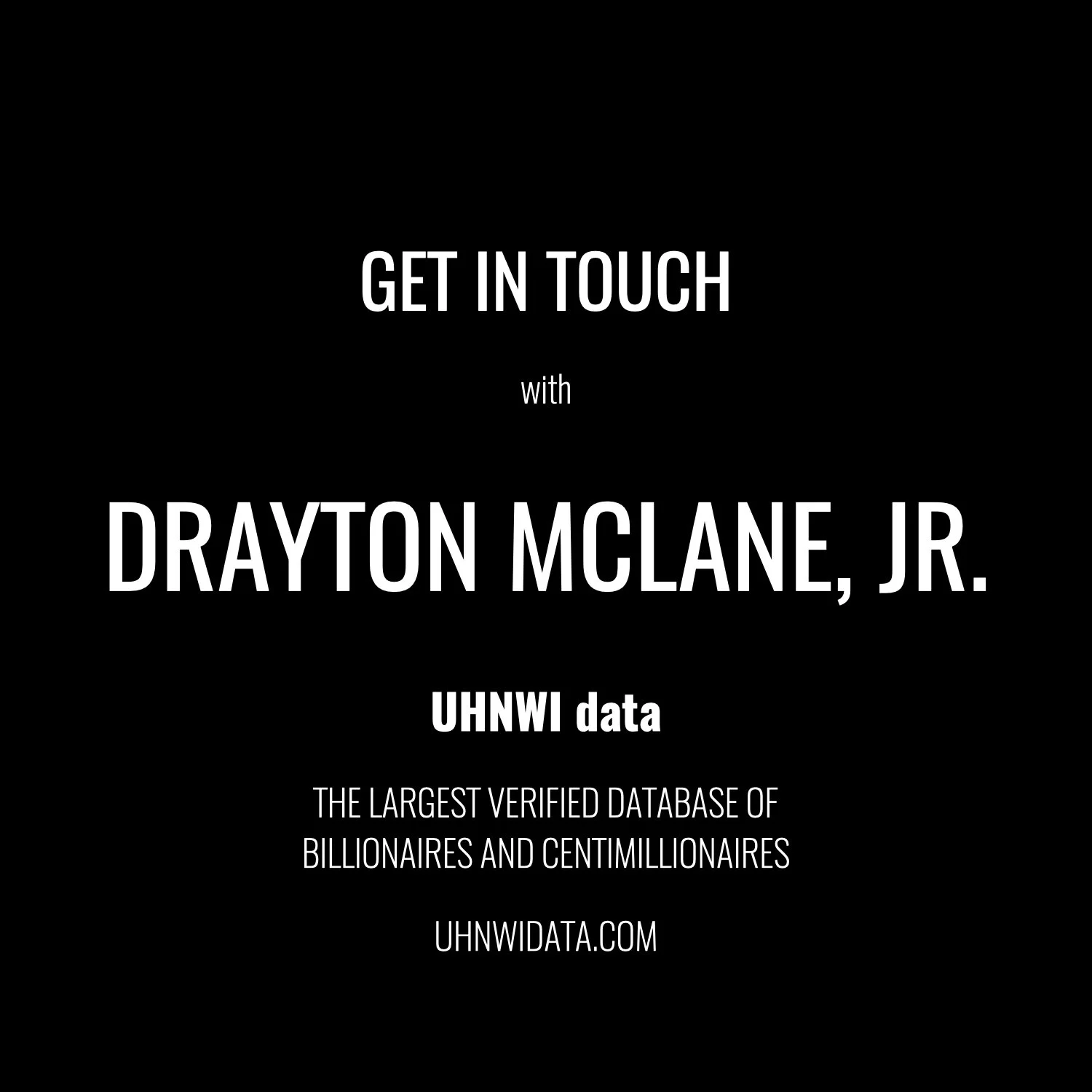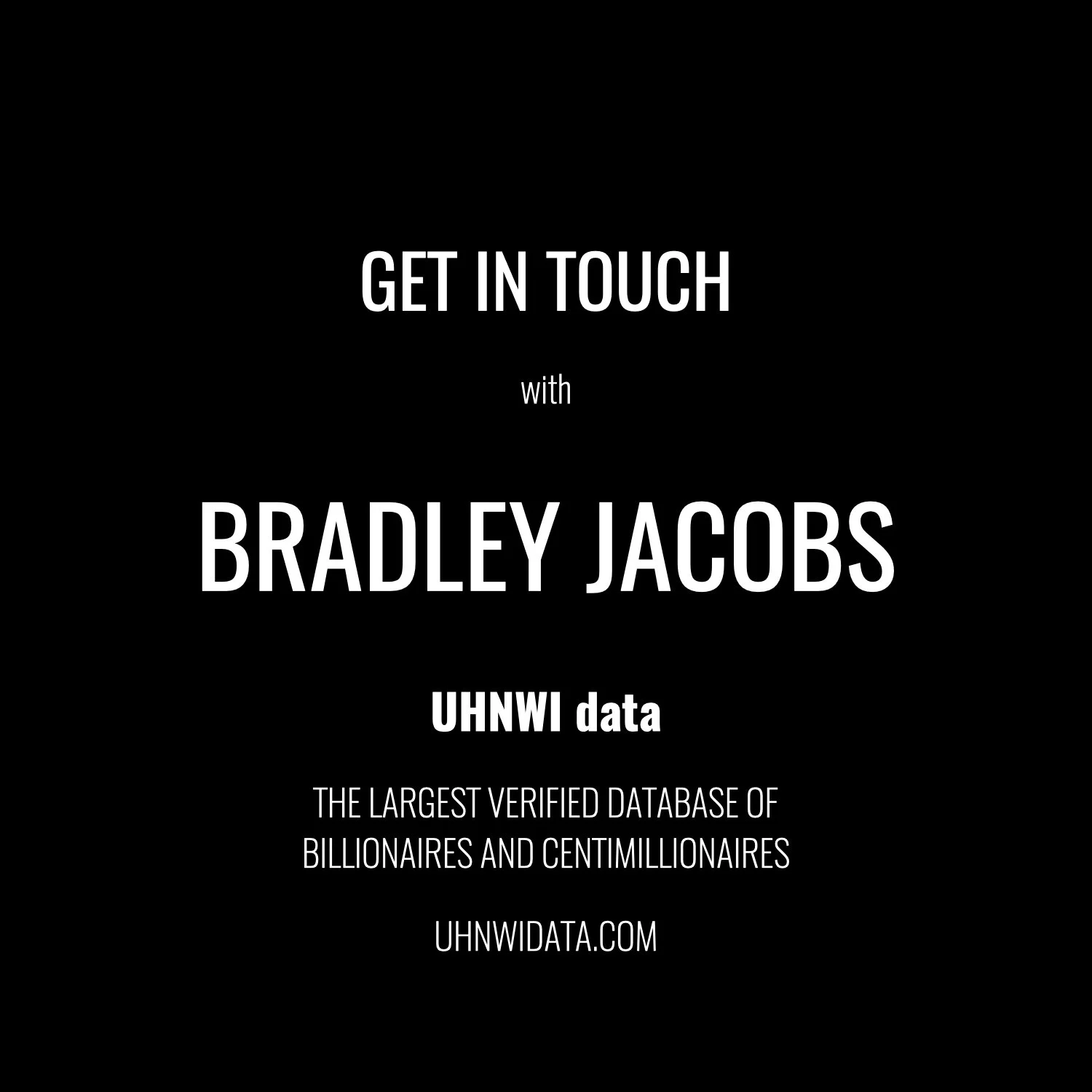James Robert Crane (born January 17, 1954) is an American billionaire businessman and the principal owner and executive chairman of the Houston Astros Major League Baseball franchise.[1][2]
Crane built his wealth in the freight and logistics sector, founding Eagle USA Airfreight in the 1980s and later establishing Crane Worldwide Logistics and Crane Capital Group, where he serves as chairman and CEO.[3][4] In November 2011, he led an investment group that acquired the Astros and a minority stake in a regional sports network for $615 million, succeeding Drayton McLane as the team's fifth principal owner.[5][2]
Under Crane's stewardship, the Astros shifted from consistent losers to perennial contenders, implementing data-driven strategies that yielded American League pennants in 2017, 2019, and 2022, along with World Series victories in 2017 and 2022.[5] This turnaround, however, drew intense scrutiny amid a 2019 Major League Baseball investigation revealing the team's use of a camera-based sign-stealing system during the 2017 season, resulting in a $5 million fine, forfeited draft picks, vacated postseason wins, and suspensions for manager A.J. Hinch and general manager Jeff Luhnow—both of whom Crane subsequently fired—though the league's report found no evidence of his awareness or involvement.[6] Crane publicly accepted responsibility for the organizational failures while defending the legitimacy of subsequent achievements.[7]
Early life and education
Childhood and family background
James Robert Crane was born on January 17, 1954, in Dellwood, Missouri, a northern suburb of St. Louis. He grew up in a household with limited financial means, where his father worked as a life insurance salesman and his mother as a grocery store clerk.[8][9]
Crane's family emphasized self-reliance and hard work amid these modest circumstances, shaping his early development. His parents' occupations reflected a working-class ethos, with money often tight, fostering a competitive drive evident from youth. Baseball became a formative influence, as Crane frequently rode his bike from home to attend local games, embedding an early passion for the sport within family-supported activities.[4][10]
The death of his father shortly after Crane's freshman year of college intensified family challenges, yet his mother's firm directive to remain in school highlighted values of perseverance and responsibility. Summers involved manual labor, such as a 1974 union job loading docks at a dry goods company near St. Louis, reinforcing practical self-sufficiency. In 1984, to initiate his entrepreneurial path, Crane secured a $10,000 loan from his sister, underscoring bootstrapped beginnings reliant on familial backing rather than external capital.[11][10][2][4]
College athletics and early ambitions
Crane attended the University of Central Missouri (then known as Central Missouri State University), where he played baseball as a pitcher for the Mules from 1973 to 1976.[12][13] During his four-year career, he compiled a record of 21 wins and 8 losses with an earned run average of 2.42, earning honorable mention as a Division II All-American.[12][14] His performance established him as a standout in NCAA Division II baseball, and he later received induction into the university's Athletics Hall of Fame in 1997.[12]
In 1976, Crane graduated from the University of Central Missouri with a Bachelor of Science degree in industrial safety.[14][4] The discipline and competitive mindset developed through his athletic career provided a foundation for his subsequent professional pursuits, as he transitioned from the mound to entrepreneurial endeavors in logistics.[15]
Following graduation, Crane initially worked in the freight forwarding industry before relocating to Houston in 1982 to capitalize on expanding opportunities in airfreight and logistics during the region's economic growth.[4][16] This move reflected his early ambitions to build a career in business operations, leveraging his degree and work ethic to enter a sector tied to Houston's booming energy and trade activities.[4]
Business career
Founding Eagle Global Logistics
Jim Crane established Eagle USA Airfreight in March 1984 in Houston, Texas, at the age of 30, with a modest $10,000 loan from his sister.[4][17] The venture began as a domestic airfreight forwarding operation, targeting the increasing demand for efficient cargo transportation amid the era's expanding global trade and aviation infrastructure.[17][18]
As CEO, Crane directed the company's evolution into international logistics, rebranding it as Eagle Global Logistics and broadening services to include ocean freight, customs brokerage, and supply chain management.[4] This expansion capitalized on Crane's operational strategies, such as entrepreneurial sales approaches and advanced information systems, which differentiated the firm in a competitive industry.[4] Revenue milestones underscored the growth: from startup origins, annual sales reached $80 million by 1994 and surpassed $240 million by 1997, reflecting successful scaling through acquisitions and network development.[19] The company achieved public listing on NASDAQ in 1995 as EGL, Inc., enabling further capital for global reach while maintaining focus on freight forwarding efficiency.[20]
Expansion, sale, and Crane Worldwide Logistics
Under Crane's leadership, Eagle Global Logistics expanded rapidly from its founding as a domestic air-freight firm in 1984, achieving $80 million in revenue by 1994 and surpassing $240 million by 1997 through aggressive domestic sales growth and complementary acquisitions that bolstered international capabilities.[19][21] The company went public on NASDAQ in 1995, evolving into one of the largest U.S. air freight forwarders with a broad service menu including local delivery, warehousing, and global supply chain management, supported by strategic partnerships and organic expansion into overseas markets.[20][22]
By 2007, Eagle Global Logistics reached approximately $1.7 billion in annual revenue but faced mounting pressures as a public entity, culminating in a leveraged buyout that stripped Crane of control; private equity firm Apollo Management orchestrated the takeover, after which CEVA Logistics acquired the company for $2 billion in August 2007.[22][23] This divestment, while ending Crane's direct oversight amid shareholder and debt dynamics, provided capital proceeds that enabled new ventures, underscoring his shift from public-market constraints to privately held operations.[19]
In 2008, Crane founded Crane Worldwide Logistics in Houston, Texas, assembling a team of former Eagle executives and acquiring three small firms to rapidly rebuild a global freight forwarding presence focused on air, ocean, and diversified logistics services.[24][25] The company demonstrated resilience by pivoting to integrated supply chain solutions, projecting over $1 billion in revenue within 5-7 years of launch; by 2011, it generated an estimated $390 million, scaling to $740 million by fiscal 2017 and approximately $900 million annually by 2018 through organic growth and targeted expansions like domestic warehousing and international partnerships.[26][22][27] This trajectory reflected Crane's adaptability, leveraging industry expertise to navigate post-Eagle challenges without the regulatory burdens of public status.[28]
Other business ventures
In 2006, following the sale of Eagle Global Logistics, Crane established Crane Capital Group as his investment management firm, serving as its chairman and chief executive officer to oversee a diversified portfolio emphasizing operational improvements and long-term value rather than speculative gains.[4][29] The firm has directed investments into sectors including transportation, power distribution, real estate, and asset management, applying Crane's logistics-honed focus on efficiency to enhance portfolio company performance.[29]
Crane expanded into hospitality with the 2010 acquisition of the Floridian National Golf Club in Palm City, Florida, from H. Wayne Huizenga, subsequently investing in redesigns and facilities to position it as a premier private course hosting PGA Tour professionals and members.[30] In 2017, he entered the restaurant industry by opening Potente, an upscale Italian venue, and adjacent Osso & Kristalla, a casual trattoria, both in downtown Houston to capitalize on local economic activity near sports venues.[31][32]
Additional holdings include Aperture, a Sonoma County winery acquired as part of food and beverage diversification, producing premium Cabernet Sauvignon and reflecting Crane's strategy of targeting high-value, operationally intensive assets.[33] These ventures align with Crane's broader approach through Crane Capital Group, prioritizing hands-on management to drive sustainable growth in complementary industries like leisure and real estate-adjacent developments.[34]
Houston Astros ownership
Acquisition and strategic shifts
In May 2011, Jim Crane agreed to lead an investment group in purchasing the Houston Astros from owner Drayton McLane for $680 million, a deal that included acquiring a minority stake in the team's regional sports network, Comcast SportsNet Houston.[35][36] The sale price was subsequently reduced to $615 million as a condition of the agreement to shift the franchise to a different league alignment.[37]
On November 17, 2011, Major League Baseball owners unanimously approved Crane's ownership group, with the transaction tied to the Astros' relocation from the National League Central Division to the American League West beginning in 2013.[38][39] This realignment balanced the leagues at 15 teams each, facilitating more consistent scheduling and expanded interleague opportunities that could enhance competitive dynamics and revenue streams for the franchise.[40] The approval proceeded despite earlier league reservations about Crane's business history, including regulatory issues from his logistics firm.[41][42]
Crane's initial strategic emphasis centered on restructuring the Astros' player development pipeline, hiring Jeff Luhnow as general manager in December 2011 to prioritize scouting, drafting, and minor-league infrastructure amid a farm system then ranked among baseball's weakest.[43][2] This overhaul aimed to address the team's stagnation after years of middling performance and poor prospect depth under prior ownership.[44]
Rebuilding the franchise
Upon acquiring the Houston Astros in November 2011, Crane inherited a farm system ranked dead last among MLB organizations entering that season, with Baseball America placing it 30th overall based on prospect talent.[45] The franchise had endured three consecutive seasons of 100+ losses from 2011 to 2013, including a league-worst 111 defeats in 2013 after switching to the American League.[46] Crane prioritized rebuilding through internal development, directing resources toward enhanced scouting, international signings, and draft investments rather than heavy free-agent spending.[43]
This strategy yielded rapid results, elevating the Astros' farm system to the top ranking in baseball by 2014 according to MLB Pipeline evaluations.[47] Key initiatives included hiring general manager Jeff Luhnow, who implemented data analytics to identify undervalued talent, such as signing Jose Altuve as an international free agent in 2007 for $15,000 and drafting players like Carlos Correa in 2012.[48] The infusion of prospects like George Springer, Alex Bregman, and Lance McCullers Jr. transitioned the major-league roster from rebuild to contention, achieving playoff qualification in 2015 after posting MLB's worst record just two years prior.[2]
Crane's commitment to contention extended to retaining core contributors via high-annual-value extensions, including a seven-year, $163.5 million deal for Altuve in 2018 and re-signing Justin Verlander on a two-year, $66 million contract in 2022 following his midseason trade acquisition.[49] This approach sustained success, powering the Astros to their first World Series title in 2017—completing a "worst-to-first" arc in six years from Crane's purchase—and a second championship in 2022, bookended by four American League Championship Series appearances in that span (2017, 2019, 2021, 2022).[2][50] The model's emphasis on homegrown talent and analytics-driven decisions contrasted with the prior regime's stagnation, establishing a pipeline that minimized reliance on external acquisitions.[51]
Recent management and trades
Following the 2022 World Series victory, Astros owner Jim Crane authorized several high-profile free-agent signings aimed at maintaining contention, though some drew criticism for their length and subsequent underperformance. In November 2022, the team signed first baseman José Abreu to a three-year, $58.5 million contract, which was viewed as a long-term commitment to stabilize the position but resulted in disappointing production (.237 batting average in 2023 and further decline in 2024), leading to his release in June 2024 with over $30 million still owed.[52][53] Similarly, reliever Rafael Montero received a three-year, $34.5 million extension in the same offseason, but his effectiveness waned (ERA above 4.00 post-2022), contributing to his designation for assignment and eventual release, marking another costly misstep in bullpen investments.[52][54]
In contrast, shorter-term deals like the reacquisition of Justin Verlander in 2023 were praised for bolstering the rotation without excessive risk, helping sustain playoff appearances despite injury challenges.[11] The signing of first baseman Christian Walker to a three-year deal in December 2024 also received initial acclaim for its balanced term relative to Abreu's contract, aiming to address offensive needs at a position plagued by inconsistency, though early 2025 results sparked debate over value.[55][56] These moves reflect Crane's willingness to allocate payroll—exceeding $200 million in recent seasons—for veteran talent, even amid luxury tax penalties, prioritizing competitiveness over fiscal conservatism.[57]
Crane's aggressive approach peaked at the July 31, 2025, trade deadline, where the Astros acquired shortstop Carlos Correa from the Minnesota Twins in exchange for left-hander Matt Mikulski, third baseman Ramón Urías from the Baltimore Orioles for right-hander Twine Palmer, and outfielder Jesús Sánchez from the Miami Marlins for right-hander Ryan Gusto and prospects, moves that reinforced his reputation as baseball's most aggressive owner by emphasizing immediate contention over prospect hoarding.[58][59] Despite criticisms of overpaying for rentals or aging players, these transactions contributed to sustained AL West relevance, with the team posting winning records and postseason berths annually post-2020, underscoring Crane's focus on winning windows.[57][11]
In July 2025, Crane resolved a 12-year lawsuit against former owner Drayton McLane alleging misrepresentation of the Astros' stake in the failed Comcast SportsNet Houston regional sports network during the 2011 sale, settling confidentially after one day of trial without admitting fault or disclosing terms, closing a dispute originally seeking up to $440 million in damages.[60][61][62] This outcome allowed Crane to refocus resources on operations, aligning with his pattern of decisive resolutions to external distractions while navigating ownership challenges.[63]
Controversies
Eagle Global Logistics legal and regulatory issues
Eagle Global Logistics (EGL), founded by Jim Crane in 1984, faced multiple federal investigations and settlements related to billing practices and employment discrimination during its growth phase in the 1990s and 2000s. In 2006, EGL paid $4 million to the U.S. Department of Justice to resolve allegations under the False Claims Act that the company had imposed unauthorized "war risk surcharges" on shipments for the U.S. military during the Iraq War, without admitting liability.[64] Separately, in 2008, EGL settled related false claims and kickback allegations for $750,000, stemming from overcharges and improper incentives involving military contracts in Kuwait.[65] These resolutions contributed to over $10 million in total federal settlements for various charges, including billing irregularities, though EGL continued expanding operations and went public before its eventual sale.[66]
The company also encountered scrutiny from the Equal Employment Opportunity Commission (EEOC) over workplace practices. In 2001, EGL entered a $9 million consent decree with the EEOC to settle claims of systemic discrimination against Black, Hispanic, and female employees, including allegations of lower pay for minorities and women, demotions of women from managerial roles, and a hostile work environment; the decree required training and monitoring but did not name Crane individually.[67] Earlier EEOC findings from the late 1990s highlighted patterns of discrimination, such as resistance to hiring minorities, resolved through payments without admission of guilt.[68] Portions of the discrimination settlement funds were later returned to EGL after legal challenges to EEOC administration, underscoring procedural disputes rather than ongoing violations.[69]
These corporate-level resolutions—focused on operational compliance rather than personal accountability—did not halt EGL's trajectory, as the firm maintained government contracts and achieved significant revenue growth before being acquired by CEVA Logistics in 2007 for approximately $1.4 billion in stock.[66] No lawsuits directly implicated Crane in liability, with outcomes emphasizing fines paid and remedial measures implemented at the entity level.[42]
Sign-stealing scandal
In 2017, the Houston Astros employed an illegal electronic sign-stealing system during home games, utilizing a center-field camera feed piped into a replay room near the dugout to decode opposing catchers' signals in real time.[70][71] Bench coach Alex Cora and players including Carlos Beltrán orchestrated the decoding, with signals relayed to batters via banging on a trash can—two bangs for off-speed pitches, silence for fastballs—primarily benefiting hitters at the plate.[72][73] The scheme, player-driven and unknown to owner Jim Crane per the MLB report, extended into the postseason but ceased camera use there; a similar but less systematic version persisted in 2018 regular-season home games without postseason electronic aid.[70]
MLB's January 13, 2020, investigation, led by former commissioner Rob Manfred and conducted by Tony La Russa, confirmed the violations and imposed penalties including a $5 million fine—the league maximum—loss of first- and second-round draft picks in 2020 and 2021, and one-year suspensions for manager A.J. Hinch and general manager Jeff Luhnow, whom Crane fired the next day.[70][74] The 2017 World Series title was not vacated, and no players faced discipline due to immunity granted for their cooperation in the probe, a decision Manfred cited as prioritizing future deterrence over retroactive individual sanctions.[75][76]
Crane publicly accepted organizational responsibility in a February 13, 2020, spring training press conference, stating the scandal stemmed from a flawed culture under prior leadership but defending the players' achievements as earned absent further MLB-mandated punishments.[77][78] He controversially remarked that the cheating "didn't impact the game," later clarifying he deferred to Manfred's ruling against player suspensions or title vacating, arguing precedent protected on-field results while emphasizing internal reforms like enhanced compliance monitoring.[7][79]
The penalties drew widespread criticism from rival players and executives for perceived leniency, with figures like Los Angeles Dodgers president Andrew Friedman and New York Yankees players decrying the lack of player accountability and unvacated 2017 honors as undermining competitive integrity, fueling fan backlash and calls for asterisks on Astros records.[80][81] Defenders, including some analysts, contended the scheme's edge was marginal—potentially adding 1-2% batting advantage per studies of similar tactics—and hard to isolate from the team's analytically superior roster, noting MLB's immunity policy encouraged whistleblowing and that subsequent Astros contention, including the 2022 World Series win, reflected sustained talent over scandal fallout.[82][83] Despite ongoing debates, no additional player penalties materialized, with Manfred affirming in 2020 the sanctions sufficed as deterrence amid baseball's tradition of limited retroactive voiding.[84]
Litigation with Drayton McLane
In November 2013, Houston Baseball Partners LLC, led by Jim Crane, filed a lawsuit in Harris County District Court against Drayton McLane Jr., his entities, Comcast, and NBCUniversal, alleging fraud, negligent misrepresentation, civil conspiracy, and breach of contract related to the 2011 sale of the Houston Astros.[85][86] The suit stemmed from the $615 million transaction, in which Crane's group acquired the team and McLane's 56.6% stake in the newly launched Comcast SportsNet Houston (CSN Houston), a regional sports network intended to broadcast Astros games under a 25-year, $2.6 billion rights deal.[36][87]
Crane claimed McLane and the media companies misrepresented the network's value by inflating projected subscriber fees and carriage agreements with cable providers, leading to an overpayment of hundreds of millions when CSN Houston collapsed in 2012–2013 due to insufficient affiliations and financial losses exceeding $100 million annually.[88][62] The complaint asserted that McLane knew or should have known the network's business model was unsustainable, as evidenced by pre-sale negotiations where carriage deals were not secured, yet projections assumed widespread adoption.[85] McLane denied the allegations, countering that Crane breached the purchase agreement by mismanaging the team—evidenced by the Astros' 111-loss 2013 season—and failing to promote the network, which contributed to its failure rather than any misrepresentation.[87][89]
The case endured nearly 12 years of pretrial motions, appeals, and delays, including a 2023 Texas Supreme Court ruling rejecting McLane's anti-SLAPP motion under the Texas Citizens Participation Act, allowing the fraud claims to proceed on grounds that the dispute centered on contractual breaches rather than public participation.[90][91] No admissions of liability occurred during proceedings, with both parties maintaining that the sale agreement's terms—lacking explicit adjustments for network viability—underpinned their positions on valuation realism.[61]
Trial commenced on July 24, 2025, in Harris County, but after one day of testimony, Crane and McLane reached a confidential settlement on July 25, 2025, averting a jury verdict on damages potentially exceeding $440 million.[60][36][61] The resolution underscored Crane's sustained challenge to the transaction's financial premises without public disclosure of terms or concessions, focusing on empirical shortfalls in the TV asset's performance against pre-sale representations.[62][63]
Personal life
Family and marriages
Jim Crane has been married three times. His current wife is Whitney Wheeler Crane, whom he wed on May 28, 2017, at his Floridian National Golf Club in Palm City, Florida, following a postponement due to earlier scheduling conflicts.[92][93]
Prior to this, Crane was married to Franci Neely for 21 years; their divorce was finalized on February 13, 2015, with a reported settlement exceeding $30 million, though the terms emphasized no impact on his Astros ownership.[94][95] Details on his first marriage remain private, with limited public records available.[96]
Crane has three children from previous relationships: sons Jared Crane and James Robert Crane II, and daughter Krystal Crane Thompson.[96] The family maintains a low public profile, with occasional appearances tied to Astros events, such as Jared's involvement in team operations and family moments at weddings.[97][98]
Lifestyle and residences
Jim Crane maintains his primary residence in Houston's affluent River Oaks neighborhood, where he acquired a 3.27-acre historic property at 2124 River Oaks Boulevard for $24 million in 2022 before demolishing the existing 1938 mansion in July 2023 due to its dilapidated condition, with plans to construct a new modern home on the site.[99][100] This location aligns with his oversight of the Houston Astros, keeping him rooted in the city central to the franchise's operations. Previously associated with a Mediterranean-style megamansion in the Broadacres neighborhood, which his ex-wife listed for $18 million in 2020, Crane has shifted focus to this River Oaks estate as his main Houston base.[101][102]
Beyond Houston, Crane owns The Floridian, a private golf resort in Palm City, Florida, which he acquired in 2010 and has developed into a destination attracting professional golfers through facility upgrades.[2] He previously owned a Pebble Beach estate in California, listed for sale at $25 million in 2019 after an initial $37.9 million asking price, reflecting his affinity for golf-centric properties.[103]
Crane leads a low-profile lifestyle, emphasizing business commitments and Astros management over public appearances, with personal interests centered on golf, where he has invested in local Houston courses like the $34 million renovation of Memorial Park Golf Course.[104] His involvement in such projects underscores a preference for community-tied investments rather than high-visibility pursuits, maintaining privacy amid his business success.[105]
Philanthropy
Astros Foundation initiatives
The Astros Foundation, the charitable arm of the Houston Astros, concentrates its efforts on enhancing education, youth development, health, and wellness in the Greater Houston area through baseball-related programs and direct community support. Its cornerstone initiatives include the Astros Youth Academy, which offers free baseball and softball instruction, life skills training, and academic support to underserved youth, and the Astros RBI Program, aimed at reviving baseball in inner cities by providing equipment, facilities, and coaching to participants from low-income backgrounds.[106][107]
In response to Hurricane Harvey's devastation in August 2017, the Astros Foundation, alongside team ownership, committed $4 million to relief efforts, funding victim aid, rebuilding, and recovery in affected regions. This pledge facilitated direct assistance, including supplies distribution and infrastructure repairs, demonstrating a focus on immediate, measurable recovery rather than broad symbolic gestures.[108][109]
The foundation extended its impact in 2024 by donating $6 million to Houston-area nonprofits aligned with its five core pillars: youth baseball and softball, education, performing arts, health and wellness, and military support. These funds supported targeted programs, such as scholarships and facility enhancements, yielding outcomes like expanded access to sports for thousands of children and academic enrichment for at-risk students.[2]
Recent relief initiatives underscore tangible infrastructure improvements; in September 2025, following July floods in Central Texas, the foundation allocated $2.5 million to construct three new youth baseball fields in Ingram, Texas, with completion targeted for spring 2026 to restore recreational access for local Little Leagues. This effort, involving collaboration with Major League Baseball, prioritized rapid rebuilding of damaged stadiums to sustain community youth programs.[110][111]
Personal and educational donations
In 1998, Jim Crane donated $1.2 million as the primary underwriter for renovations to the University of Central Missouri's baseball facilities, including new dugouts, locker rooms, coaches' offices, and an umpires' dressing room, leading to the field being named Jim Crane Stadium at Robert N. Tompkins Field.[17][14] He followed this with a $1 million gift in 2015 to install a synthetic turf playing surface at the stadium.[9] In 2020, Crane provided a lead gift of $1.5 million toward further expansions, such as indoor batting cages, bullpens, and a weight room, demonstrating sustained commitment to his alma mater's baseball program where he pitched collegiately.[112]
Crane also supported his high school alma mater, Lutheran High School North in Dellwood, Missouri, with a $1 million donation in 2004 to upgrade athletic facilities, enabling campus expansion and improvements that now bear his name.[10] These contributions align with his induction into the Missouri Sports Hall of Fame in 2017, which recognized his ongoing funding of athletic scholarships and infrastructure enhancements tied to his Missouri roots in baseball development.[2]
Awards and honors
Sports and business recognitions
In 2017, Jim Crane was inducted into the Missouri Sports Hall of Fame for his collegiate pitching achievements at the University of Central Missouri from 1973 to 1976, where he recorded a 21-8 win-loss mark, a 2.42 earned run average, 23 complete games (a program record), and 18 strikeouts in a single game (another program record).[9][113] This honor also acknowledged his leadership in acquiring and revitalizing the Houston Astros in 2011, transforming the franchise through strategic investments.[9]
Crane received the Lifetime Achievement Award at the Houston Business Journal's 2025 Most Admired CEO Awards, presented on August 21, 2025, for building Eagle Global Logistics into a major freight forwarding operation and engineering the Astros' turnaround from consistent underperformance to a competitive powerhouse with two World Series championships.[16][114]
Since purchasing the Astros for $680 million in November 2011, Crane oversaw a farm system reconstruction that elevated it from MLB's weakest ranks—marked by years of low draft picks and poor minor-league talent—to one of the league's best, producing core players that fueled division titles and World Series wins in 2017 and 2022.[115][34] This merit-based rebuild, emphasizing analytics and player development, earned industry recognition for its disciplined execution amid initial tanking criticism.[44]
Additional sports honors include Crane's 2018 induction into the Texas Business Hall of Fame on November 1 and receipt of the Jack Buck Award from the Missouri Athletic Club in December 2018 for contributions to baseball ownership.[2] He was also enshrined in the St. Louis Sports Hall of Fame in 2020, highlighting his roots and Astros stewardship.[116]
Philanthropic accolades
In 2017, the Houston Astros organization, led by owner Jim Crane, received Major League Baseball's Allan H. Selig Award for Philanthropic Excellence, the league's highest philanthropic honor, for the Astros Foundation's Community Leaders Program, which engaged over 200 community leaders in volunteer service and distributed grants exceeding $1 million annually to local nonprofits focused on youth development, education, and health.[117][118] This recognition underscored the program's impact in mobilizing corporate and civic partnerships for sustained community giving, with Crane emphasizing the foundation's growth from modest origins to a multimillion-dollar entity under his tenure.[119]
Crane's philanthropic efforts through the Astros Foundation and personal donations have been contextualized relative to his estimated net worth of approximately $2 billion, where foundation assets expanded from $50,000 at acquisition to over $12 million by the mid-2010s, enabling targeted initiatives like Hurricane Harvey relief commitments of $4 million in 2017, though such giving represents a fraction of overall wealth compared to high-profile philanthropists donating tens of percent of fortunes.[9] In 2025, the Houston Business Journal awarded Crane its Lifetime Achievement honor within the Most Admired CEO Awards, citing his integration of business success with substantial community investments, including foundation-led disaster response and youth programs that have served thousands in the Greater Houston area.[16][11












